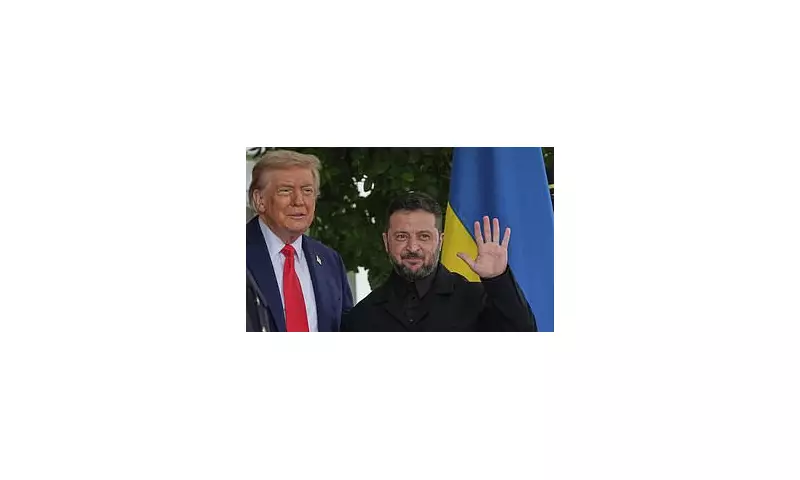
Russian President Vladimir Putin has sparked fresh controversy by openly questioning the legitimacy of Ukrainian leader Volodymyr Zelensky, whose presidential term technically expired in May. The remarks came as world leaders, including former US President Donald Trump and UK Labour leader Keir Starmer, offered diverging perspectives on how to end the ongoing conflict.
Putin's Provocative Stance
During a high-profile meeting in St. Petersburg, Putin declared that Zelensky's presidency had 'lost its legitimacy' following the expiration of his five-year term. This assertion directly challenges Ukraine's constitutional provisions for wartime governance, which allow elected officials to remain in power during martial law.
The Russian leader's comments appear calculated to undermine international support for Kyiv at a critical juncture in the war. Political analysts suggest this rhetoric forms part of Moscow's broader strategy to question Ukraine's democratic processes while justifying its own military actions.
Global Reactions Pour In
Donald Trump, speaking at a campaign event, reiterated his claim that he could 'end the war in 24 hours' if reelected, though he provided no substantive details about his proposed approach. The Republican nominee's comments contrasted sharply with those of Keir Starmer, who emphasized the need for continued Western support for Ukraine during his recent White House visit.
Starmer, poised to become Britain's next Prime Minister, reportedly discussed long-term security arrangements for Ukraine with President Joe Biden. The Labour leader's stance aligns with the current UK government's position, suggesting policy continuity regardless of the upcoming political transition in Westminster.
Constitutional Complexities
Ukraine's constitution presents a unique dilemma - while presidential elections would normally have been held in March 2024, the country's martial law provisions prohibit voting during wartime. Legal experts widely agree that Zelensky remains the legitimate head of state under these extraordinary circumstances.
International leaders, including those from the G7 nations, have uniformly maintained recognition of Zelensky's government despite Putin's assertions. This diplomatic consensus underscores the geopolitical divide surrounding the conflict, now entering its third year with no clear resolution in sight.





